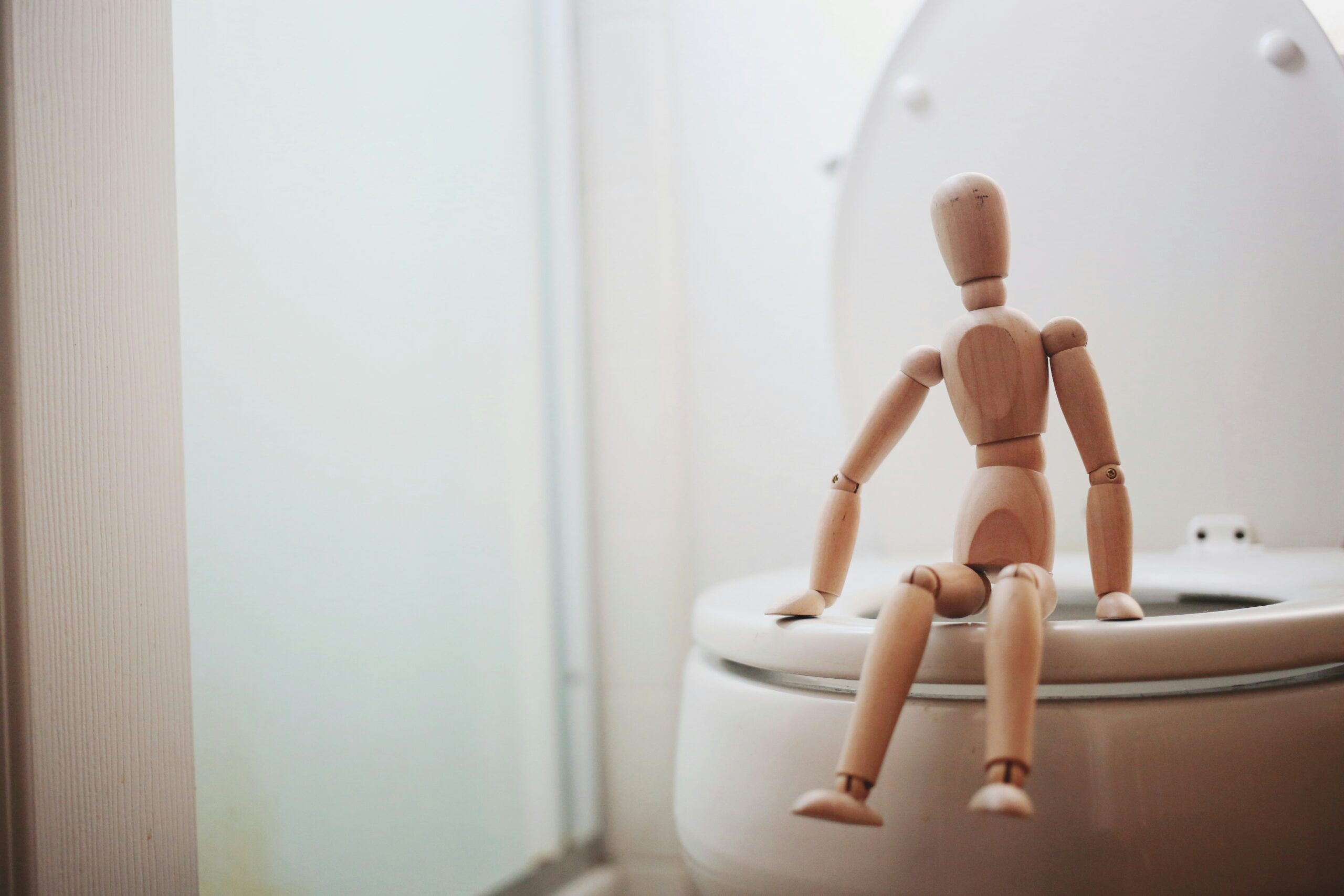Is Your Gut Trying to Tell You Something?
If you find yourself racing to the bathroom, it’s more than just an inconvenience—it’s a sign that your gut is out of balance. When diarrhea becomes chronic or unpredictable, it can lead to nutrient deficiencies, dehydration, and inflammation. Many people turn to over-the-counter medications for quick relief, but these only mask the problem instead of solving it. Functional medicine looks beyond the symptoms to uncover why diarrhea is happening in the first place. Instead of treating it as a random occurrence, this approach identifies root causes like gut infections, food sensitivities, or bacterial imbalances that may be driving your symptoms. If you’re tired of dealing with digestive distress and want real, lasting relief, it’s time to understand what’s triggering your diarrhea—and how to fix it naturally.Common Causes of Chronic Diarrhea
While it can be easy to write off diarrhea as “normal,” it is actually a signal from your body that something is off. Here’s a breakdown of the most common underlying causes:1. Gut Dysbiosis (Imbalanced Gut Bacteria)
Your gut is home to trillions of bacteria that play a crucial role in digestion, nutrient absorption, and immunity. When harmful bacteria outnumber beneficial bacteria, this imbalance—known as gut dysbiosis—can lead to chronic inflammation, poor digestion, and frequent diarrhea. This is often triggered by factors such as low stomach acid (hypochlorhydria), bacterial or viral infections, food sensitivities, or overuse of antibiotics. Without a balanced microbiome, the digestive system struggles to break down food properly, leading to increased gut irritation and loose stools.2. Food Sensitivities & Leaky Gut
Many people experience diarrhea after consuming foods like gluten, dairy, corn, soy, artificial additives and chinese buffets. In these cases, the body perceives these foods as threats, triggering an immune response that leads to gut inflammation. Leaky gut syndrome is a condition where the lining of the intestines becomes permeable, allowing undigested food particles and toxins to enter the bloodstream. This immune activation can contribute to chronic diarrhea, as the body reacts to perceived invaders and increases bowel motility to eliminate them quickly.3. H. Pylori & Other Gut Infections
- pylori is a common bacterial infection that affects the stomach lining, reducing stomach acid production and disrupting digestion. This, along with other bacterial or parasitic infections, can lead to chronic diarrhea, bloating, and malabsorption of nutrients. These infections often go undiagnosed for years, worsening gut health over time. Contaminated water, food, or close contact with infected individuals are the most common sources of transmission.
4. Bile Acid Malabsorption
Bile acids, produced by the liver and stored in the gallbladder, are essential for digesting fats. However, if they are not properly absorbed in the intestines, they can irritate the colon and cause watery diarrhea. This condition is particularly common in people who have had their gallbladder removed or those with conditions like IBS-D (Irritable Bowel Syndrome – Diarrhea dominant). Without proper bile acid regulation, the digestive system struggles to maintain normal bowel function, leading to chronic diarrhea and nutrient malabsorption.5. Stress & the Gut-Brain Connection
The gut and brain are deeply interconnected through the gut-brain axis. Chronic stress activates the fight-or-flight response, which diverts energy away from digestion moving the food through the gut very quickly. This can result in loose stools and increased bowel urgency. Additionally, stress changes gut bacteria, increasing the bad and decreasing the good, further exacerbating digestive issues. People experiencing high levels of anxiety, depression, or chronic stress often notice a direct correlation between their emotional state and digestive symptoms, including persistent diarrhea.A Functional Medicine Approach to Healing Chronic Diarrhea
Rather than just taking anti-diarrheal medication, functional medicine focuses on restoring balance to the digestive system by addressing underlying imbalances. Here’s how:1. Identify the Root Cause
Functional medicine starts with a deep investigation into what is causing chronic diarrhea rather than just treating symptoms. This involves:- Comprehensive Stool Testing – This test analyzes gut bacteria, detects harmful pathogens, parasites, and yeast overgrowth, and evaluates digestive enzyme function. It helps determine if an infection or imbalance is contributing to diarrhea.
- Food Sensitivity & Inflammation Testing – Identifying foods that trigger immune responses can help eliminate inflammation and pinpoint dietary triggers.
- Elimination Diet – A structured plan that removes common irritants like gluten, dairy, soy, corn, and processed foods for 30-60 days to see if symptoms improve before reintroducing foods one at a time.
- Professional Guidance – Working with a functional medicine practitioner ensures that test results are interpreted correctly, leading to a personalized treatment plan.
2. Repair the Gut Lining
A damaged gut lining, also known as leaky gut, allows toxins and undigested food particles to enter the bloodstream, triggering immune reactions and worsening diarrhea. Healing the gut lining is essential for restoring digestive function:- L-Glutamine – This amino acid helps repair and strengthen the intestinal walls, reducing permeability and inflammation.
- Aloe Vera – A natural anti-inflammatory that soothes the gut lining and reduces irritation caused by chronic diarrhea.
- Bone Broth – Packed with collagen and amino acids, bone broth helps rebuild the intestinal lining and provides essential nutrients for gut healing.
- Probiotics – A high-quality probiotic supplement with Lactobacillus and Bifidobacterium strains helps restore beneficial bacteria and prevent further inflammation.
3. Balance Digestive Enzymes & Bile Acids
Proper digestion relies on adequate enzyme production and bile flow to break down food effectively. When these are out of balance, diarrhea can persist:- Digestive Enzymes – If the body isn’t producing enough enzymes to break down carbohydrates, fats, and proteins, undigested food can ferment in the gut, leading to diarrhea. A broad-spectrum enzyme supplement can support digestion and absorption.
- Bile Acid Regulation – If the gallbladder has been removed or isn’t functioning properly, bile acids may flood the intestines, triggering watery diarrhea. In these cases:
- Ox bile supplements help improve fat digestion.
- Soluble fiber (such as psyllium husk and flaxseeds) helps bind excess bile acids to prevent irritation.
4. Optimize Diet for Gut Health
Diet plays a major role in stabilizing digestion and preventing diarrhea triggers. Functional medicine recommends:- Eating Whole, Unprocessed Foods – Focus on fresh vegetables, lean proteins, and healthy fats to support digestion.
- Increasing Fiber Intake – Soluble fiber (found in avocados, chia seeds, and cooked vegetables) helps bulk up stools and slow digestion, while insoluble fiber (like raw greens) should be introduced gradually.
- Eliminating Common Irritants – Sugar, alcohol, caffeine, gluten, dairy, corn and artificial additives can inflame the gut and disrupt digestion.
- Staying Hydrated with Electrolyte-Rich Fluids – Chronic diarrhea depletes essential minerals like sodium, potassium, and magnesium. Coconut water, bone broth, and herbal teas help restore these nutrients.
5. Manage Stress & Support the Nervous System
The gut and brain are closely connected through the gut-brain axis, meaning stress can trigger or worsen diarrhea. Functional medicine incorporates mind-body practices to regulate digestion:- Mindful Eating – Slowing down and chewing food thoroughly ensures proper breakdown of nutrients and reduces digestive distress.
- Light Movement After Meals – Gentle walking after meals stimulates digestion and prevents bloating.
- Stress Management Techniques – Chronic stress affects the nervous system’s control over digestion, so techniques like deep breathing, meditation, and yoga help regulate gut motility.
- Prioritizing Sleep – Poor sleep disrupts gut bacteria and increases inflammation, so consistent, high-quality sleep is key for recovery.
A Sample Gut-Healing Meal Plan
To help support digestion and reduce diarrhea, here’s a 1-day gut-friendly meal plan: Breakfast: Coconut yogurt with chia seeds, blueberries, and a drizzle of honey. Lunch: Baked cod with mashed sweet potatoes and steamed green beans. Snack: Sliced cucumber and carrots with homemade hummus. Dinner: Slow-cooked chicken soup with bone broth, carrots, zucchini, and fresh herbs. This anti-inflammatory, nutrient-dense meal plan helps soothe the gut while providing essential nutrients for healing. Adjust portions and ingredients based on your individual tolerance and dietary needs.When to Seek Help From A Functional Medicine Practitioner
If diarrhea is frequent, severe, or persistent, it’s time to get professional support. Consider seeking professional help if you experience:- Diarrhea lasting more than a few weeks.
- Unintentional weight loss.
- Blood in the stool.
- Severe bloating or abdominal pain.
- Symptoms that don’t improve with dietary changes.






